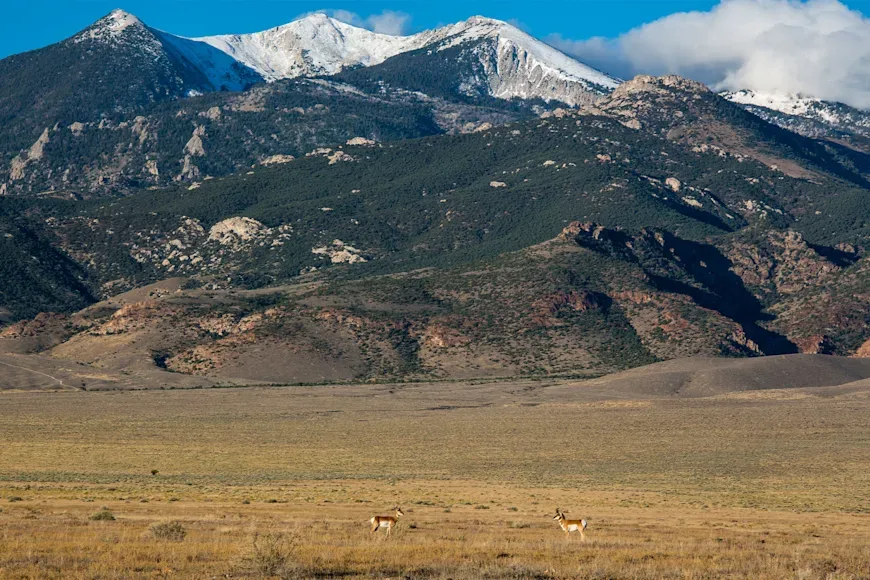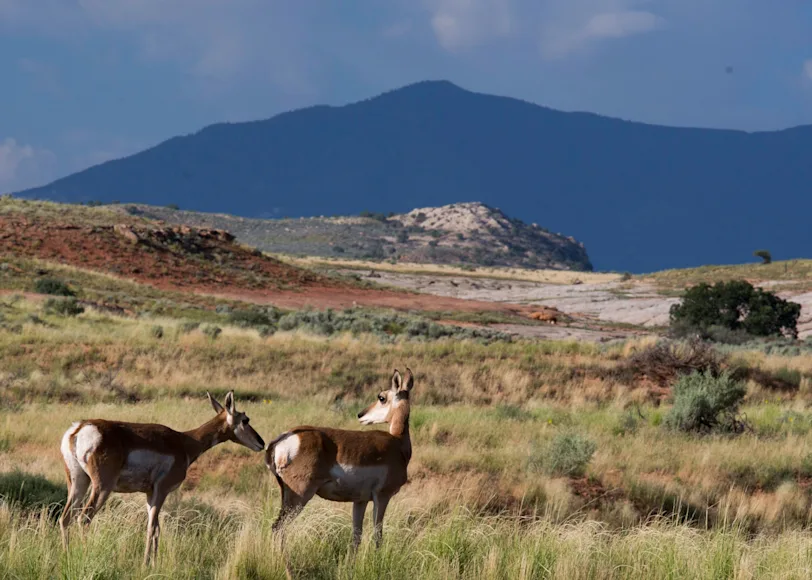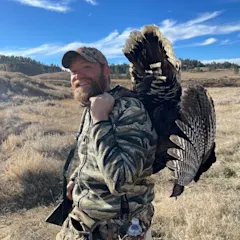Earlier this week, the United States Supreme Court (SCOTUS) said it won’t hear a controversial lawsuit out of Utah that would have put millions of acres of public land in limbo. In its lawsuit, filed in August 2024, Beehive State officials brazenly claimed that the federal government has no constitutional right to own and manage vast swaths of public land spread across the country—and that those lands should therefore be removed from the public trust altogether. Conservation groups are applauding the SCOTUS decision to refuse the lawsuit, saying it would have led to an unprecedented loss of access to prime hunting and fishing grounds all over the Western United States.
With its 94-page petition, Utah sought to remove as much as 18.5 million acres of public land in the state from the Bureau of Land Management (BLM). The court filing took specific issue with what the authors called “unappropriated public lands within [Utah’s] borders.” It claimed that such lands are held by the BLM without being “reserved for any designated purposes.”
Implications Beyond Utah
According to Madeline West, Vice President of Western Conservation at the Theodore Roosevelt Conservation Partnership (TRCP), the lawsuit would have had broad ramifications for federally-managed lands outside of Utah and outside of the BLM. "What they’re arguing is that, constitutionally, the federal government shouldn’t be allowed to own these lands," West tells Field & Stream. "And, therefore, the federal government should be required to dispose of them."
That would result in a forced transfer of all but a few of our federally managed lands, West says. And it begs the question: To whom would these lands be transferred and for what purpose? "It’s not as if multiple-use mandates would carry over if these lands were transferred," she says. "Those of us who advocate for public access to amazing hunting and fishing grounds would have to start from scratch in justifying our access."
American hunters and anglers enjoyed unparalleled access to more than 640 million acres of federally-protected public land nationwide. The BLM alone administers more than 245 million acres throughout the West. While the agency has long managed its holdings for timber extraction, energy production, and livestock grazing, BLM lands are enjoyed by countless Americans every year for everything from sage grouse to elk hunting. And with the recently enacted Public Lands Rule, the agency added the long-term conservation of its vast tracts of hunting and fishing habitat to its official set of management principles.

In a September interview with F&S, Patrick Berry, CEO of Backcountry Hunters & Anglers (BHA), said a favorable ruling in Utah's lawsuit would have put lands managed by other federal agencies on the chopping block as well. "There are 210 million acres of land throughout the West that fit under this category of unappropriated land,” he said. “If Utah prevails here, you're talking about an outcome that would impact BLM lands, U.S. Forest Service lands, U.S. Fish and Wildlife Service lands, and other lands managed by federal agencies.”
A State-Sponsored Anti-Public Lands PR Campaign
Kaden McArthur is BHA's Director of Policy and Government Relations. Originally from Utah's Cache Valley, McArthur is a lifetime hunter and angler now based out of Washington, D.C. He says the political leadership in his home state is running a formidable public relations campaign that's designed to convince Utah residents that the feds are inept in their management of the state's vast tracts of public land. Federally-managed lands make up about 70 percent of the state's landmass, according to the AP.
"You can drive up and down I-15 and see billboards, and you'll get Youtube and other targeted ads in your internet searches," he says. "It's all part of the state's goal of shifting perception on this and getting public support for the their desire to dispose of unappropriated BLM lands.
I think the most interesting aspect is how they've co-opted the language of the sporting community. If you go to their campaign website, they’ve got the phrase: 'Keep public lands in public hands' written all over it, which is immensely frustrating to the hunters, anglers, and conservationists who have pushed back on these bad ideas for decades—who understand that transferring to the state and ultimately privatizing these lands is bad for hunters."
McArthur isn't sure if Utah will continue to execute its expensive PR campaign given the Supreme Court's recent refusal to hear the controversial land transfer case. "The state has appropriated tens of millions of dollars of tax payer money pursuing this campaign," he says. "And the public perception shift that they're aiming for extends beyond this lawsuit. Either way, we are bracing for a larger wave of anti-public lands sentiment."
Durable Federal Protections vs. Short-Sighted Land Transfer Remedies
According to TRCP's West, there are legitimate challenges facing our federally-managed public lands, not just in Utah, but across the West. But she believes that everyday citizens will ultimately come together with state and federal land managers, and conservation non-profits, to meet the challenges head on—rather than simply disposing of millions of acres of habitat or forcing unappropriated lands into an uncertain future under state management.
"Our federal public lands, and how they are managed, is a real and meaningful part of the day-to-day lives of so many rural communities in the West, and often times the people who are most impacted by decisions made about federal public lands are not involved in the decision making process," she says. "That creates a level of discontent that needs to be addressed. At TRCP, we want to work with communities, local governments, state legislatures, and high-level elected officials in the state to identify the real challenges that they’re having with public lands management and address those issues specifically and in a durable way."
She says Utah's desire to dispose of federally-managed public land is out of whack with the management problems people in the state are facing. " I don’t think that changing who manages these lands is a long-term solution," West continues. "Someone’s still going to have to figure out how to manage tens of millions of acres that require a lot of financial investment to make them highly functioning, to make them profitable, to make them resistant to wildfire, invasive annual grasses, and all the challenges that land managers have. That’s not going away."
Future Threats
TRCP and BHA aren't the only hunting-and-angling-focued conservation groups that came out against Utah's so-called land grab lawsuit. In an October 2024 blog post, Trout Unlimited CEO Chris Wood said the Beehive State's petition might be the most pressing threat to public lands he's ever seen. "Make no mistake," Wood wrote, "if Utah’s legal challenge is successful, other states will surely follow suit, and hundreds of millions of acres of lands that are collectively owned by the people of the United States could be handed over to the states."
As Wood alluded to, officials in other states have already lent support to Utah's ambitious land transfer goals. According to the Idaho Sun, local legislatures, attorney generals, and individual politicians in a dozen states signed a "friends of the court" amicus brief in support of the suit. States listed in the brief include Idaho, Nebraska, North Dakota, Texas, Wyoming, Alabama, and South Carolina. The American Lands Council also signed on alongside Utah Senators Mitt Romney and Mike Lee and Rep. Harriet Hageman of Wyoming.
After the Supreme Court's denial on Monday, it's safe to say that the conservation community is breathing an audible sigh of relief. But no one expects the recent threats to federally-managed public lands to disappear anytime soon. New threats could emerge in different lawsuits filed in lower courts, West says, or in legislative actions taken by Congress.
Related: Mining Road Through Alaska’s Brooks Range Denied Again Thanks to Outcry from Hunters and Anglers
"I don’t think that Congress picking up this idea and trying to pen a legislative solution that forces the federal government to transfer and sell their lands to the states is ever going to be a good answer for anyone," she says. "They tried to do that a decade ago, and it was wildly unpopular with people on the ground because they love our public lands—and they love access for hunting and fishing and other outdoor pursuits.
The groundswell of opposition to the sale and transfer of our federal public lands is still very much alive and well and as strong as it was the last time we went through this."


